Honestly Tho That Scene In The Incredibles Where Mr. Incredible Sees The Names Of All The Old Super Heroes
honestly tho that scene in the incredibles where mr. incredible sees the names of all the old super heroes that used to be his friends / that he knew from Back in the Day and how every one of them has been killed by syndrome is such a chilling scene for so many reasons
like for one, everyone he knew is dead at this point and has been killed on the same island he’s at now and two, its heartbreaking bc that means that almost every hero wanted to try out being a hero again despite the laws against it and wanted to try and help someone out and relive their glory days, only to be straight up murdered like fuck that scene is just so fuckin intense
More Posts from Darthvoxpo and Others
Just finished listening to Guards! Guards! again and the scene with the Watch asking for compensation really hit me this time around. Vetinari does his big speech about the absolute evil and darkness in humanity and then Fred Colon and Nobby Nobbs, who we know are not heroes, are not particularly nice people, are not, in short, “good” and they ask for barely any money and a new kettle and a dartboard and they worry that they’re asking for too much.
And Vimes just laughs and laughs at all the upper crust diplomats and Vetinari who can’t understand it. Can’t understand ten dollars a month raise. Can’t understand a kettle. Can’t understand a dart board.
I forgot how much I loved these books.
and speaking of Detritus’ character development:
throughout the books Detritus is shown as more and more smart, I mean compare the one in Guards! Guards! with the one from Thud! the difference is staggering.
now, this can be attributed to two things:
1) Cuddy’s helmet, which isn’t mentioned after Jingo, i think, but this can just be taken to mean that it just became normal, like the Librarian being an ape, no one notices it any more, but given the fact that the narrative mentions how bothered Detritus is by heat, and makes no mention of the helmet, i don’t think that’s it*, or
2) shockingly, when you take a member of a vilified, exploited social group (’you were chained to a wall like a guard dog when i first met you’, said Vimes, and ‘I had the stables cleaned out for your trolls’, said Bonnie or Bobbie or whatever her name was) and put them in an encouraging, supportive, hell, i’d even say loving environment, and than proceed to treat them respect, openly, actively condemn discrimination against them, and trust them with authority, they actually raise to the task at hand and start showing what they’re actually capable of.
After all, Detritus, Mended Drum splatter, doesn’t really need to think much, and even if he did, what’s the point? Who cares what/if a troll thinks?
but Sergeant Detritus of the Ankh-Morpork City Watch? Head of the anti-drug unit? Leader of the troll youth programme? Most senior troll officer in the Watch? Well, there are so many people counting on him, people who value his opinion, he just needs to be smart, doesn’t he?
Also, when you take that into consideration, like, is it any wonder that he is so invested in that youth programme? That he is such a mother hen? After all, look what an opportunity did for him, and he’s hardly the sharpest knife in the drawer.**
*but like, it would have been nice if they remembered Cuddy existed at least once in a while, I mean Cheery is amazing, but you can have more than one of a species with a significant role in a book, also, i do think that Cuddy left a mark on Detritus that is absolutely never mentioned again, and that’s not right.
**another parallel Thud! makes between Vimes and him.

This is the Baby Money Yoda, reblog in the next 60 seconds of seeing this to receive a blessing from our green bean prince.
my favorite picture ever is the one that says “HELL IS FULL, BITCH” and then it has the national suicide prevention hotline on it. it makes me smile every time
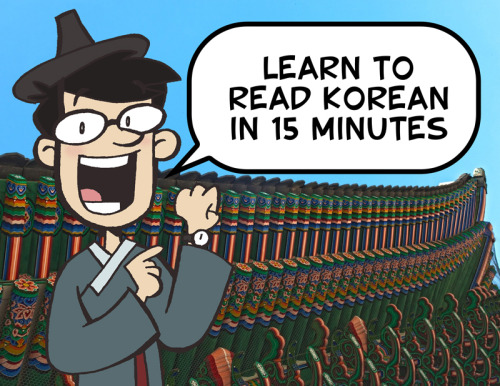
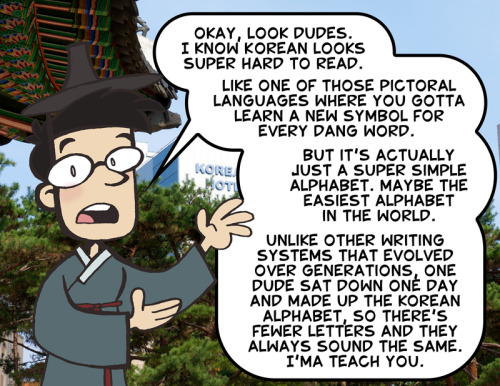
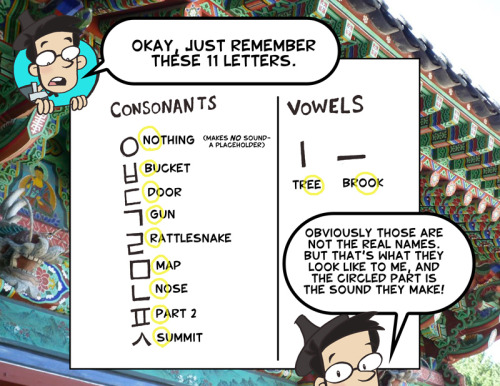
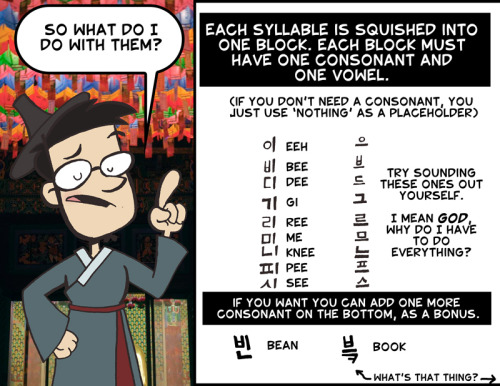
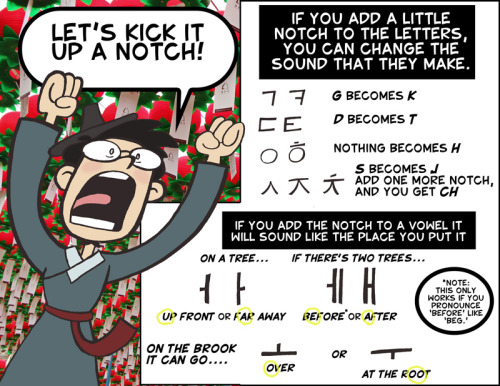
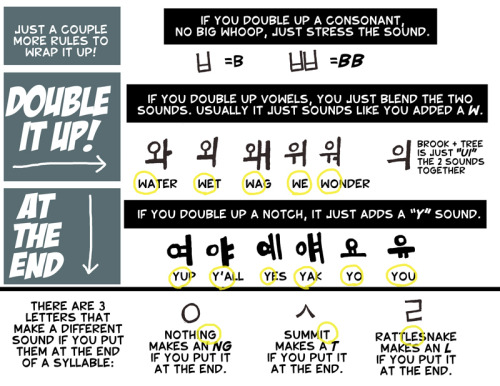
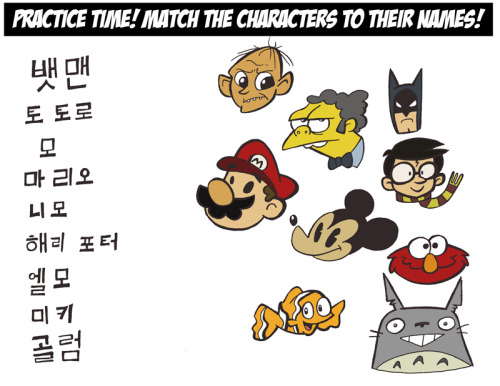
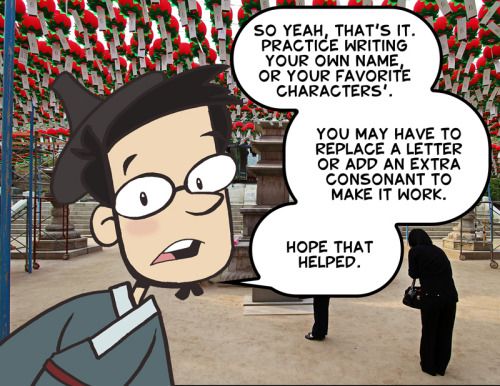
Star Trek Apoliticality Hall of Fame
1967 - “A Taste of Armageddon”: Captain Kirk introduces the technocratic elites of rival worlds to the full horrors of warfare. Totally apolitical.
1968 - “A Private Little War”: Superpowers fight a destructive proxy war on a jungle planet; aired during the Tet Offensive. No politics here.
1969 - “Let This Be Your Last Battlefield”: White-and-black guys oppress black-and-white guys until their planet is destroyed in a race war. Aired 9 months after Martin Luther King Jr. was assassinated. Politics-free.
1986 - “Star Trek IV: The Voyage Home”: In this apolitical adventure, the crew of the Enterprise travels back in time to the 20th century to rescue humpbacked whales from extinction at the hands of industrial over-fishing.
1987 - 1994 - “Star Trek: The Next Generation”: Set in a post-scarcity communist utopia in which profit motive is looked upon as barbarous. Debuted during the Reagan Administration. Just a mindless adventure series.
1991 - “Star Trek VI: The Undiscovered Country”: Two superpowers negotiate an end to their decades-long Cold War over the objections of reactionary factions in both countries. Aired 4 months after the attempted coup against Gorbachev and two weeks before the dissolution of the USSR. No politics here.
1992 - “The Outcast”: The Enterprise visits a planet with only one biological sex, where a character who nevertheless identifies as a woman is forced to undergo conversion therapy. Released at the height of the AIDS epidemic. Mercifully free of politics.
1993 - 1999 - “Star Trek: Deep Space Nine”: This politics-devoid series, which coincidentally aired during the Balkan Wars, follows a group of Federation observers who are assigned to guide the recovery of a war-torn planet.
1995 - “Past Tense, Parts 1 and 2″: Sisko, Bashir, and Dax take an apolitical trip back in time to an austerity- and inequality-ravaged early-twenty-first-century America on the cusp of revolutionary class violence, where despairing poor people are locked in ghettos whilst they “look for work”.
1996 - “Bar Association”: The employees of Quark’s Bar strike against exploitation by their employer; Rom literally quotes Karl Marx to his brother (in a wholly apolitical fashion).
2000 - “Critical Care”: The Doctor is abducted and forced to work in a horrifying, dystopian hospital where quality care and competent medics are reserved for the rich and well-to-do whilst the poor are left to bleed in an over-crowded, septic, dingy little room. Any resemblance to the American healthcare system is purely coincidental.
2001 - “Repentence”: Voyager finds itself needing to escort a bunch of alien deathrow prisoners to their execution, but finds that there is an entirely apolitical racial bias in who gets sentences in this fashion, and also that many of the murderers are not beyond reform.
2001: “Broken Bow”: Airing three weeks after 9/11, this apolitical episode finds Starfleet in conflict with a cabal of terrorists known as the Taliban Suliban.
2004: “The Forge”, “Awakening”, and “Kir’Shara”: A corrupt Vulcan government cracks down on pacifist dissidents and tries to instigate a war against with Andoria through bogus accusations that they are developing weapons of mass destruction. Aired in that lovely, politics-free aftermath of the US invasion of Iraq.
…Anyways, I could go on, but I think I’ve made my point: Star trek was always completely apolitical until Alex Kurtzman ruined it. If only they could return to the mindless, action-packed romp that Gene Roddenberry had always intended.
so the rule in my previous workplace of longest employment duration was (and probably still is)
no personal internet use while on the clock.
employee handbook said so. every so often bosses said so. that was The Rule. no personal internet use while on the clock.
except it wasn’t. it couldn’t have been the real rule.
because most people were faffing around on the internet in between bits of work. some were even doing it on the work computers, not on their personal tablets or phones.
the real rule couldn’t even have been don’t get caught using the internet for personal stuff on the clock. because zero people got in trouble over the Harry Potter Myers-Briggs quiz and related links that took up two hours of my section’s time one day. the section manager was playing as happily as anyone.
and there was not going to be any way to get anyone to explain the real rule. because the employee handbook said no personal internet use while on the clock, and that was The Rule.
anyway one of the reasons I left that job was I was sick of being autistic in that allistic hellscape.
The internet is being cut off in all the areas that are breaking out in riots and protests over the citizenship amendment bill all over the country. Just like to inform anyone who doesn't know this already. Please resort to other forms of communication and stay safe.
so I got into grad school today with my shitty 2.8 gpa and the moral of the story is reblog those good luck posts for the love of god
I'm still trying to wrap my mind around Men at Arms.
It's a fantastic book, but it is also so different from Guards! Guards! in tone. And maybe that's where the key is. It's not that the villain of the story is perhaps one of the most proficient killers in all of Discworld (all two and a half of them... D'Eath, Cruces, and The Gonne) and their goal is to actually kill. It's not even that the crimes that the watch are investigating are murder, because even though paid assassinations are legal death and murder are part of the setting. Death is literally a character here, though much more briefly than G!G!. Frankly, I don't even think it's because of the racial allegories.
The tone in Men at Arms is different because the first one to die is a clown. Because Pratchett literally killed the joke (the entire thing and all of its subsets). There's nothing funny about a clown funeral, the dogs are the biggest allegory for racial issues, a gun really is evil, Cuddy literally draws the short straw. It's all literal. Everything is extremely literal. For once, Ankh Morpork isn't a joke. For once, the city feels like a city. And it's the book where Carrot, the most literal character there is, becomes a man (literally and in every sense) and takes his mantle of leadership.
Everything in Men at Arms is literal. Because the villain killed the joke to death and it was the shining moment for Carrot to step up.
There's also an extensive running bit that even the silly construction of the silly, courtesy of Bloody Stupid Johnson, is actually stupid. Within the narrative itself, the book is calling itself out. It is saying that this absurd veneer that we have found ourselves on is just that. This city was built on itself, on its own bones, on the the bones of empires--fueled with the blood of many. The architecture beneath Johnson's flawed works, the aqueducts and sewer systems below the city, are vast and strong and powerful--maybe even beautiful. But they're dangerous. The past is incredibly dangerous. Even Carrot, whose potential is very much rooted in the past of the city, is dangerous. His victory is not one I expected in the moment it came. The line about how you must hope that whoever is looking at you from the other end of their weapon is an evil man... Was harsh and true and honestly a little frightening for a story which also contains a scene where a sentient rock man chucks a dwarf through the skylight of Schrodinger's pork warehouse to save both of their lives.
Perhaps this puts the rest of the book in context as well. Especially the things that made me cringe when I read them. Like everything about Coalface, Angua being included in the story because she was a woman and every book needs at least one (preferably one that can leap over a building or deadlift a draft horse), the high school clique-ificarion of all the guilds, Vimes talkin to the nobles after dinner and almost letting himself believe he could be like that (even though he ends up laying into them with some excellent biting sarcasm), Vetinari not being in control and not realizing it. It's all very real, but real like a real serial killer in real life and not a crime drama. Maybe even real like a normal guy in a costume with their mask off.
Maybe not.
It's not a perfect book (which bites, because G!G! was nearly there), but it remains a very intentional book. I feel like less people have read it than G!G!, and I can see why. It's messier, it's not as funny, there's a lot more allegory and it's a lot more blunt.
But it's still extremely topical (sadly). I retain my opinion that it may be one of the most important books I've ever read. And I'm beginning to understand, finally, why.
-
 lokiidraws liked this · 2 weeks ago
lokiidraws liked this · 2 weeks ago -
 sothisgameismultiplayer reblogged this · 2 weeks ago
sothisgameismultiplayer reblogged this · 2 weeks ago -
 sothisgameismultiplayer liked this · 2 weeks ago
sothisgameismultiplayer liked this · 2 weeks ago -
 peachflavouredicetea reblogged this · 2 weeks ago
peachflavouredicetea reblogged this · 2 weeks ago -
 sunnyfield liked this · 2 weeks ago
sunnyfield liked this · 2 weeks ago -
 soulsuckingisaacnewton liked this · 2 weeks ago
soulsuckingisaacnewton liked this · 2 weeks ago -
 anelectricheartbeat liked this · 2 weeks ago
anelectricheartbeat liked this · 2 weeks ago -
 floofyfungi reblogged this · 2 weeks ago
floofyfungi reblogged this · 2 weeks ago -
 floofyfungi liked this · 2 weeks ago
floofyfungi liked this · 2 weeks ago -
 robinflock reblogged this · 2 weeks ago
robinflock reblogged this · 2 weeks ago -
 dragon-monarch reblogged this · 2 weeks ago
dragon-monarch reblogged this · 2 weeks ago -
 annadasniper reblogged this · 2 weeks ago
annadasniper reblogged this · 2 weeks ago -
 alchemical-scavenger reblogged this · 2 weeks ago
alchemical-scavenger reblogged this · 2 weeks ago -
 unubinary reblogged this · 2 weeks ago
unubinary reblogged this · 2 weeks ago -
 unubinary liked this · 2 weeks ago
unubinary liked this · 2 weeks ago -
 unubinary reblogged this · 2 weeks ago
unubinary reblogged this · 2 weeks ago -
 unubinary reblogged this · 2 weeks ago
unubinary reblogged this · 2 weeks ago -
 unubinary reblogged this · 2 weeks ago
unubinary reblogged this · 2 weeks ago -
 jameisoncreeper reblogged this · 2 weeks ago
jameisoncreeper reblogged this · 2 weeks ago -
 haruka89 liked this · 2 weeks ago
haruka89 liked this · 2 weeks ago -
 jameisoncreeper liked this · 2 weeks ago
jameisoncreeper liked this · 2 weeks ago -
 bee-oh-ess liked this · 2 weeks ago
bee-oh-ess liked this · 2 weeks ago -
 mudwizardbignaturals liked this · 2 weeks ago
mudwizardbignaturals liked this · 2 weeks ago -
 alekat-adventures reblogged this · 2 weeks ago
alekat-adventures reblogged this · 2 weeks ago -
 bitty-davis-eyes reblogged this · 2 weeks ago
bitty-davis-eyes reblogged this · 2 weeks ago -
 timsteatime liked this · 2 weeks ago
timsteatime liked this · 2 weeks ago -
 mentullullulla reblogged this · 2 weeks ago
mentullullulla reblogged this · 2 weeks ago -
 goldenclouds06 reblogged this · 2 weeks ago
goldenclouds06 reblogged this · 2 weeks ago -
 painted-daisy-l0l liked this · 2 weeks ago
painted-daisy-l0l liked this · 2 weeks ago -
 musicaldaydreams liked this · 2 weeks ago
musicaldaydreams liked this · 2 weeks ago -
 savebatsfromscratch reblogged this · 2 weeks ago
savebatsfromscratch reblogged this · 2 weeks ago -
 chaotic-opossum58 liked this · 2 weeks ago
chaotic-opossum58 liked this · 2 weeks ago -
 hero529 reblogged this · 2 weeks ago
hero529 reblogged this · 2 weeks ago -
 emo-crowgirl liked this · 2 weeks ago
emo-crowgirl liked this · 2 weeks ago -
 wasigoodtoyou liked this · 2 weeks ago
wasigoodtoyou liked this · 2 weeks ago -
 is-a-b3llaaah reblogged this · 2 weeks ago
is-a-b3llaaah reblogged this · 2 weeks ago -
 demon-rain reblogged this · 2 weeks ago
demon-rain reblogged this · 2 weeks ago -
 occamysrazor reblogged this · 2 weeks ago
occamysrazor reblogged this · 2 weeks ago -
 occamysrazor liked this · 2 weeks ago
occamysrazor liked this · 2 weeks ago -
 apprenticegamemaster reblogged this · 2 weeks ago
apprenticegamemaster reblogged this · 2 weeks ago -
 lost-little-sammie reblogged this · 2 weeks ago
lost-little-sammie reblogged this · 2 weeks ago -
 lost-little-sammie liked this · 2 weeks ago
lost-little-sammie liked this · 2 weeks ago -
 arbane235 reblogged this · 2 weeks ago
arbane235 reblogged this · 2 weeks ago -
 gemderplantcat reblogged this · 2 weeks ago
gemderplantcat reblogged this · 2 weeks ago -
 gemderplantcat liked this · 2 weeks ago
gemderplantcat liked this · 2 weeks ago

92 posts